Seventh Symposium of the ICTM Study Group on Multipart Music
4-8 September 2023, Cremona
Call for papers
Musicology and Cultural Heritage Department
of the University of Pavia in Cremona, ItalyDeadline for submissions: November 1st, 2022 November 13th, 2022
Language: English.
We are pleased to announce that the Seventh Symposium of the ICTM Study
Group on Multipart Music will take place from 4 to 8 September 2023 at the Pavia University Musicology and Cultural Heritage Department in Cremona. The head of the local organising committee will be Fulvia
Caruso, from the University of Pavia.
1. Multipart music, technology and social distancing
Due to the Covid-19 pandemic we have witnessed a long period of social
distancing that has made playing and singing in groups in-person
impossible, be it in theatres, or in informal gatherings. School
buildings were closed and even when opened again, many musical
activities were forbidden. Teaching music became evermore challenging.
In the last two years we have had to cope with social distancing and
teaching and gathering together online. Calendrical events, religious or
not, like feast and festivals, had to be suspended or modified.
Technology, which was already well established in our everyday lives,
took place and space. How was multipart music affected in a more and
more technological world and during and after this long period of social
distancing ?
We are interested in understanding if and how:
· new modalities of rehearsals and performance were born or were
subjected to changes
· modalities of learning and teaching were modified (be it the
internet or recordings or any other kind of remote teaching and
learning)
· specific multipart music repertoires emerged online and why
· technology favoured intercultural exchanges
· scholars were able to carry out fieldwork
2. The body and embodiment in multipart music
Multipart music performance is a form of social collaborative behaviour
that requires participants to anticipate and adapt to each other’s
actions. This is achieved through specialized and codified forms of
social interaction. The operationalization of sensorimotor mechanisms
that support such interpersonal coordination can reveal underlying
social dynamics between performing musicians, as well as hierarchies of
musical structures. The role of embodiment in the making and perception
of multipart music, as well as in the formation of its musical and
emotional meanings, can hardly be overestimated.
Among the questions to be discussed in this section are:
· How are these forms of interaction achieved?
· How to study and document them?
· How does embodiment contribute to conveying musical meanings?
· What is the role of embodiment in the processes of learning and teaching multipart music?
3. New research
We invite proposals for individual presentations, panels and round
tables. They are to be sent by email before November 1st, 2022 November
13th, 2022
The text should be pasted into the body of the email and also sent as a
Word.doc or Rich Text Format (RTF) attachment to assure access. Please
label all communications clearly with your full contact details.
Please note that participants are limited to a single presentation.
The Program Committee reserves the right to accept those proposals that,
in its opinion, fit best into the scheme of the symposium, and that can
be accommodated within the avaquestions about the program, or the suitability of a proposal, please
contact the Program Chair and ask for assistance. Colleagues are advised
to bring alternative modes of presentation delivery if using PowerPoint,
DVD, and so on in case of unexpected technical difficulties on the day
of presentation.
Research papers should be based on original research that address the
conference theme and should not have already been presented. Pape should be designed and presented to take no more than 20 minutes,
including audio-visuals.
Individual Presentations
Accepted presentations of individual members will be grouped by the
Program Committee into sessions of one and a half hours. Each
presentation will be allotted 20 minutes inclusive of all illustrations,
audio-visual media or movement examples, plus 10 minutes for questions
and discussion.
Please, submit an abstract of 250 to 300 words outlining the content, argument and conclusion, and its relation to one of the symposium themes. Please include the type of illustrations to be used in the presentation, such as slides, DVD, video (including format), and so on
We encourage presentations in the form of panels.
Proposals may be submitted for panels consisting of at least three
presenters. The structure is at the discretion of the coordinator. The
proposal must explain the overall purpose, the role of the individual
participants, and signal the commitment of all participants attending
the conference. Each panel proposal will be accepted or rejected as a
whole.
Please, submit a short summary (between 250 and 300 words) of the panel
overview, and an individual paper proposal, as described under
“Individual Presentations” above, for each presenter. All the
proposals for a panel should be sent together. Proposals should address
one or more aspects of the established themes of this symposium.
Roundtables
We also encourage presentations in the form of roundtables: sessions
that are entirely planned, coordinated, and prepared by a group of
people, one of whom is the responsible coordinator. The aim is to
generate discussion between members of the roundtable who present
questions, issues, and/or material for about 5 minutes on the
pre-selected unifying theme of the roundtable. The following discussion,
at the convener’s discretion, may open into more general discussion with
the audience.
The total length of a roundtable will be one and a half hours inclusive
of all discussions.
Proposals may be submitted for a roundtable consisting of up to 10
presenters, and the structure is at the discretion of the convener who
will chair the event. The proposal must explain the overall purpose, the
role of the individual participants, and signal the commitment of all
participants to attend the symposium. Each roundtable proposal will be
accepted or rejected as a whole.
Membership
Please note that the Program Committee will only consider proposals
bycurrent members of the ICTM in good standing. Please contact Ardian
Ahmedaja (ahmedaja@mdw.ac.at) for membership in the Study Group. Members
may join and submit a proposal at the same time. Membership applications
are available at the ICTM website. For membership questions, contact the
ICTM Secretariat at http://www.ictmusic.org/.
Where to send the proposals?
Fulvia Caruso
email: fulvia.caruso@unipv.it
Program Committee: Fulvia Caruso (Chair), Ardian Ahmedaja, Ignazio Macchiarella Zhanna Pärtlas.
The committee cannot consider proposals received after the deadline of
November 1st, 2022 November 13th, 2022
Notification for acceptance or rejection will be announced by January
10, 2023.
If you have a deadline for funding applications for travel,
accommodation, and so on, please notify the Program Committee of your
deadline date.
Looking forward to seeing you in Cremona.
Location: Musicology and Cultural Heritage Department, Corso Garibaldi 178, 2 6100 Cremona.
Costs: ThereAccommodation: Hotel Impero, Hotel Duomo, Hotel Astoria, L’Archetto b&b. In Cremona there is also possible to rent small apartments.
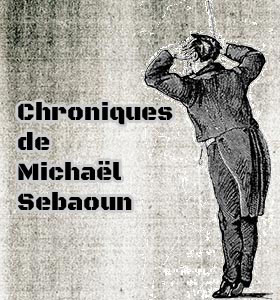
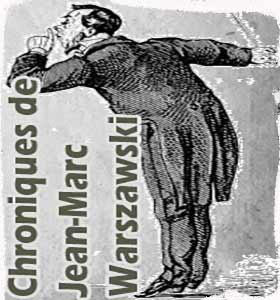
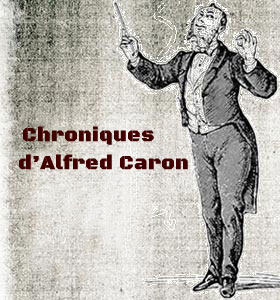
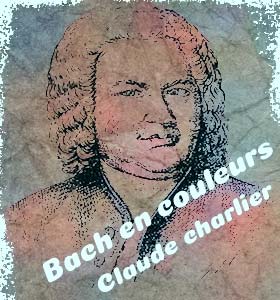
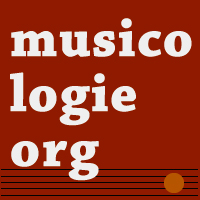 À propos - contact |
S'abonner au bulletin
| Biographies de musiciens | Encyclopédie musicale | Articles et études | La petite bibliothèque | Analyses musicales | Nouveaux livres | Nouveaux disques | Agenda | Petites annonces | Téléchargements | Presse internationale | Colloques & conférences | Collaborations éditoriales | Soutenir musicologie.org.
À propos - contact |
S'abonner au bulletin
| Biographies de musiciens | Encyclopédie musicale | Articles et études | La petite bibliothèque | Analyses musicales | Nouveaux livres | Nouveaux disques | Agenda | Petites annonces | Téléchargements | Presse internationale | Colloques & conférences | Collaborations éditoriales | Soutenir musicologie.org.
Musicologie.org, 56 rue de la Fédération, 93100 Montreuil. ☎ 06 06 61 73 41.
ISSN 2269-9910.

Dimanche 9 Mars, 2025

